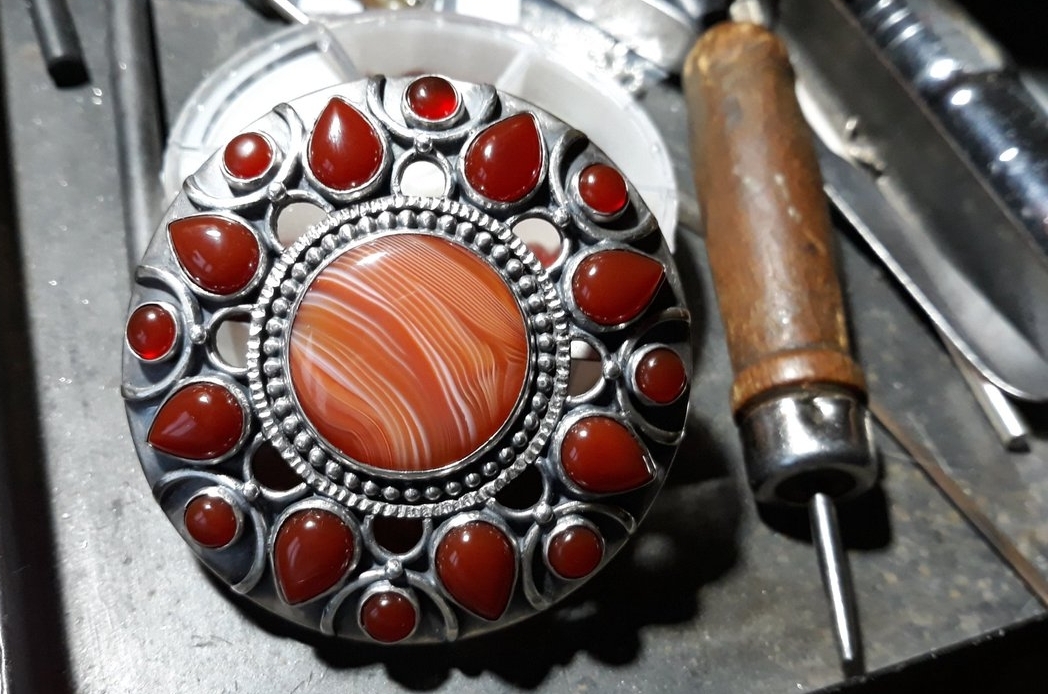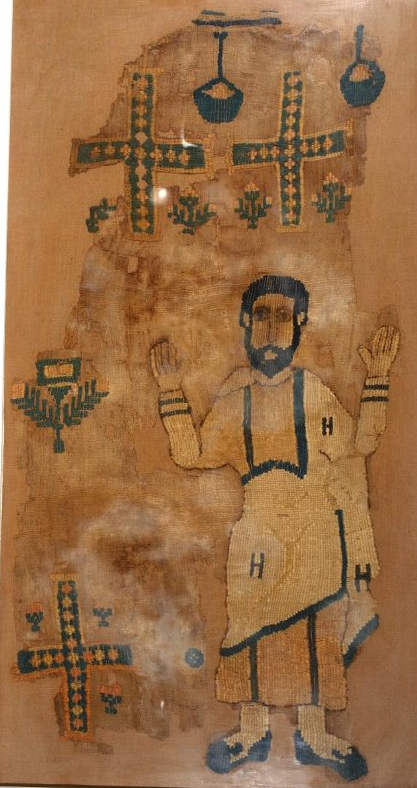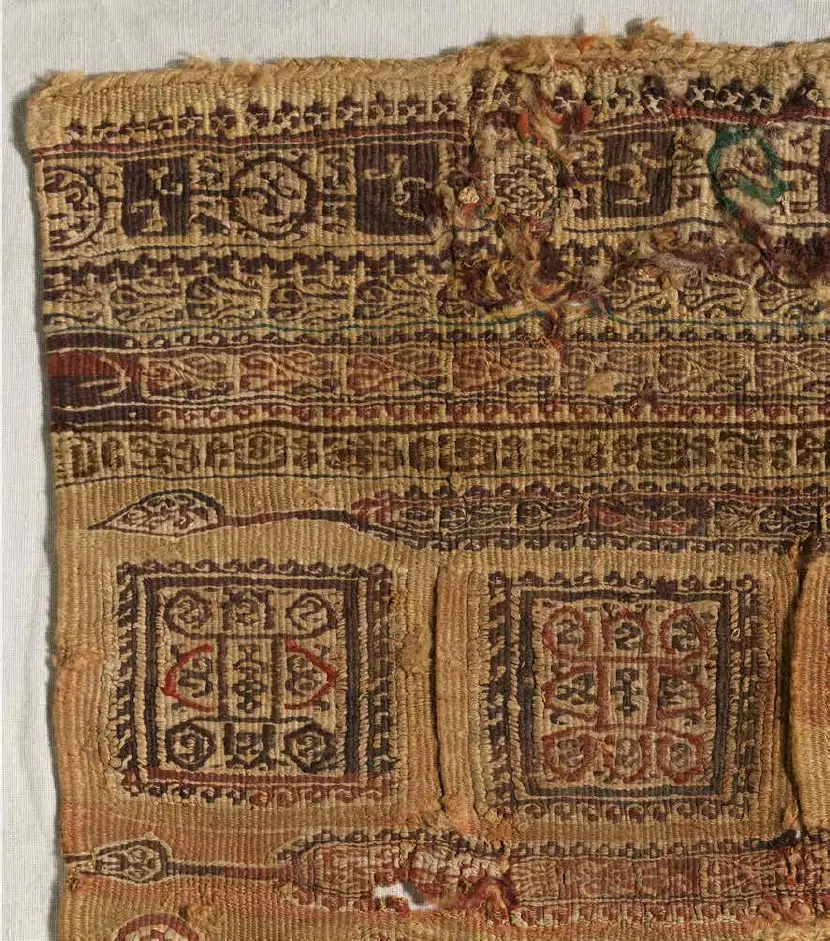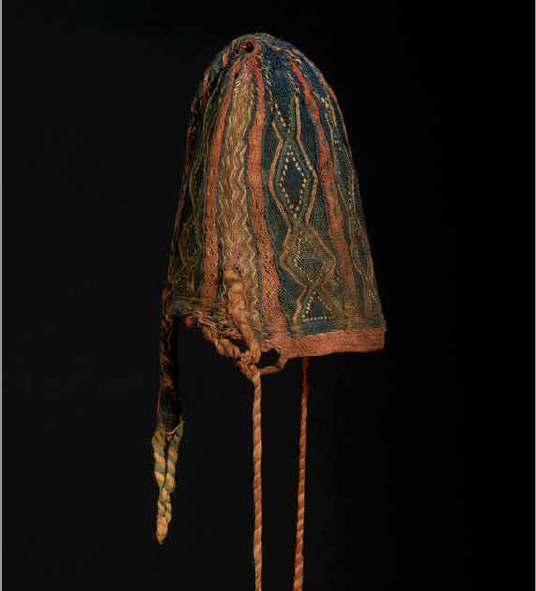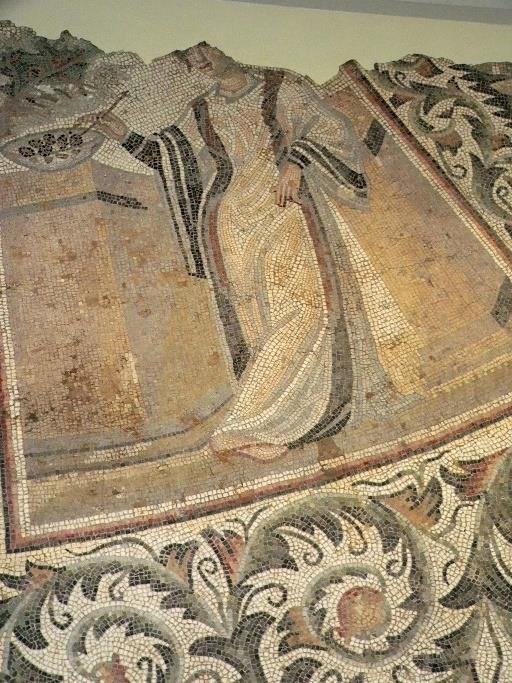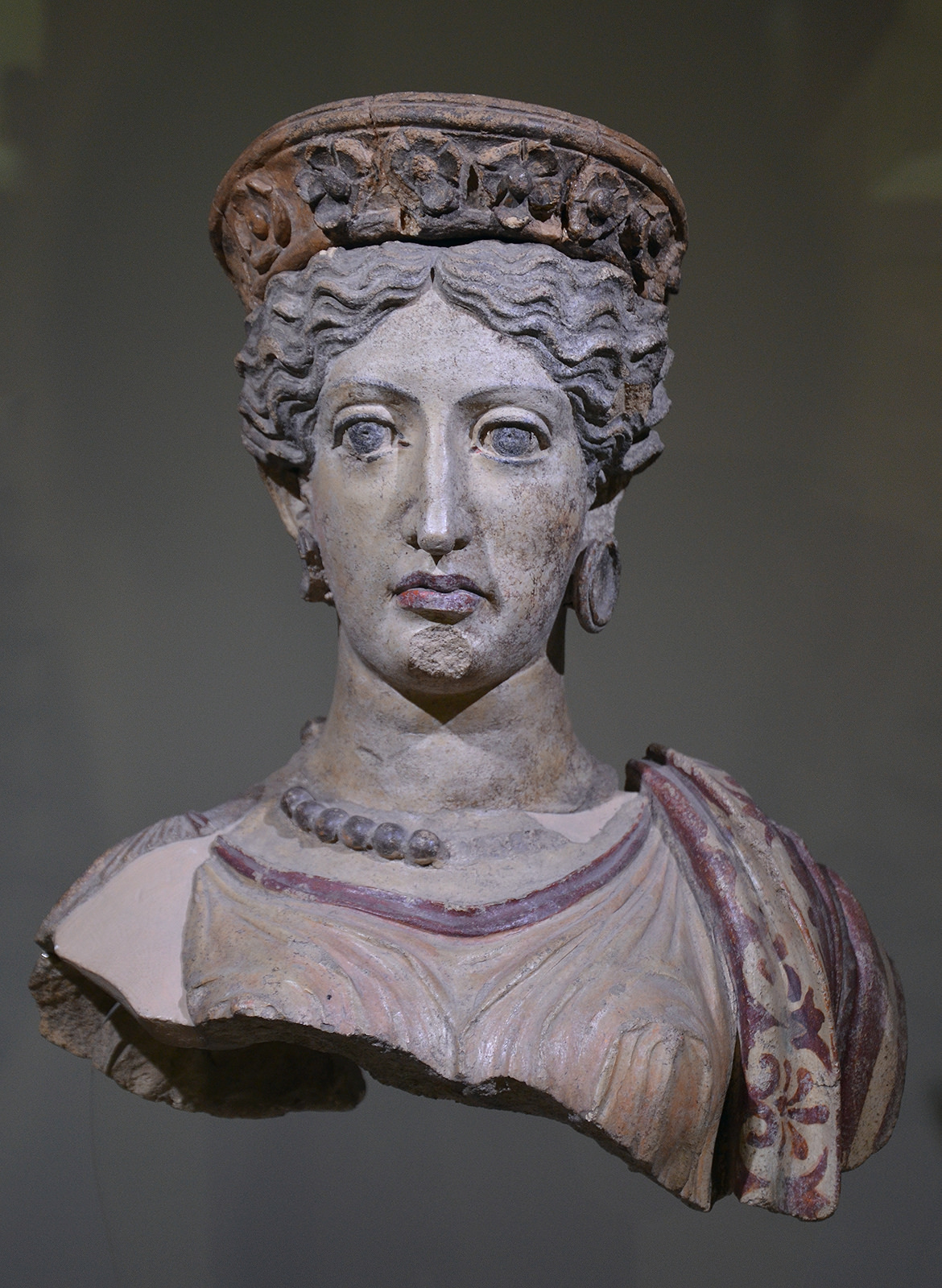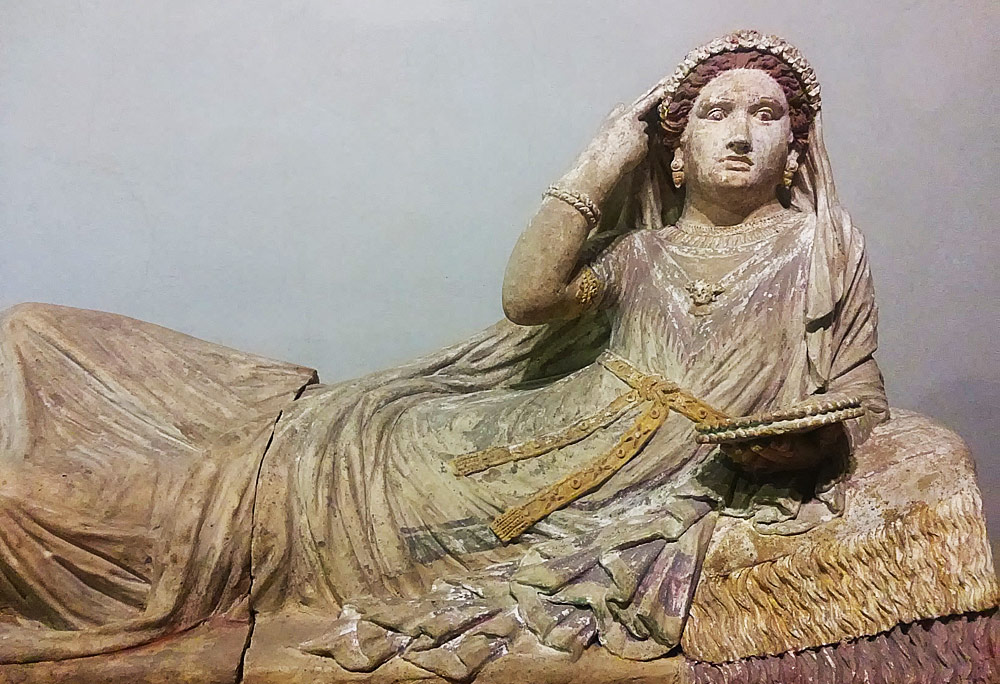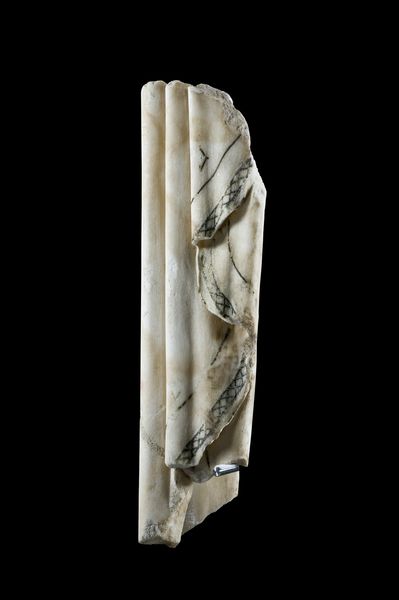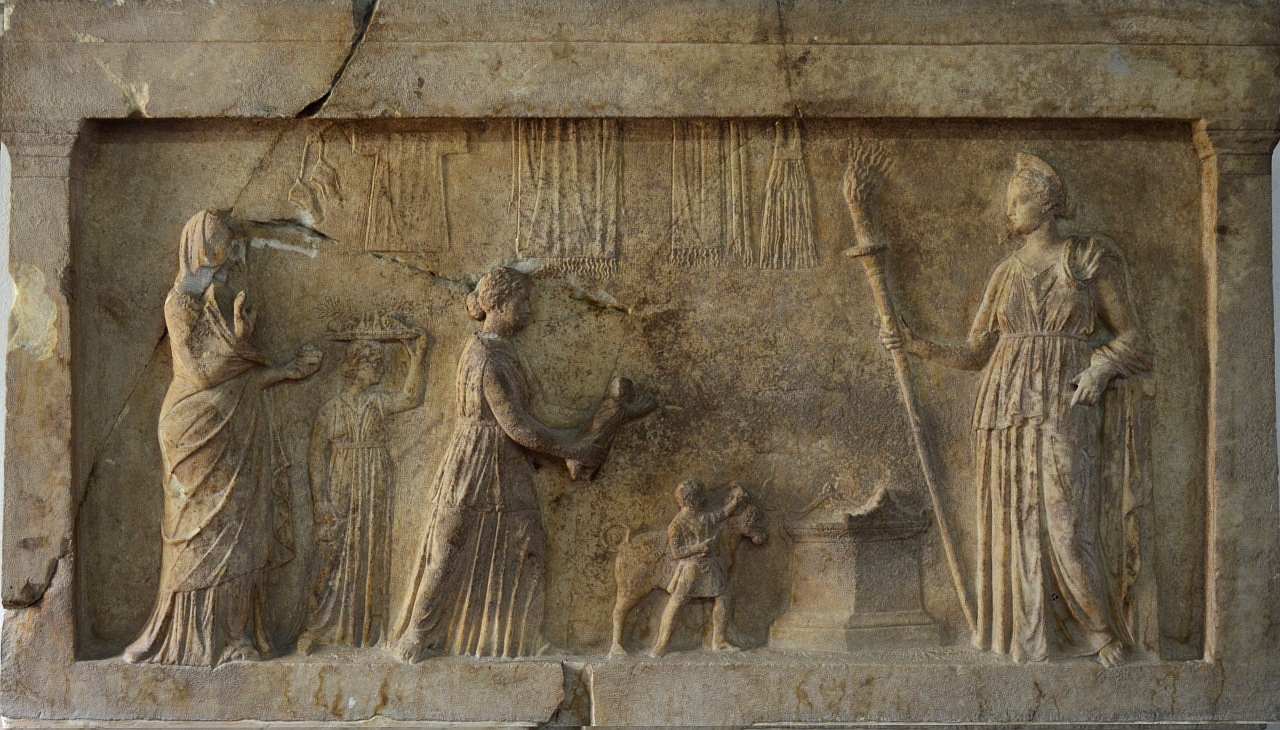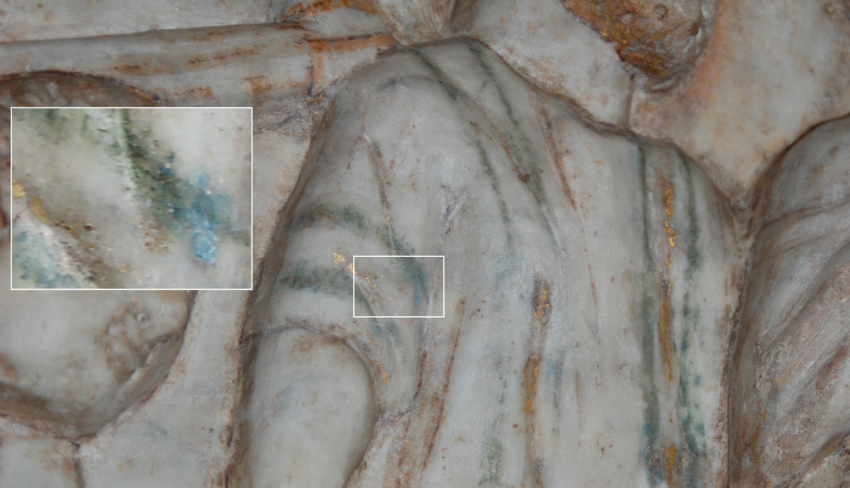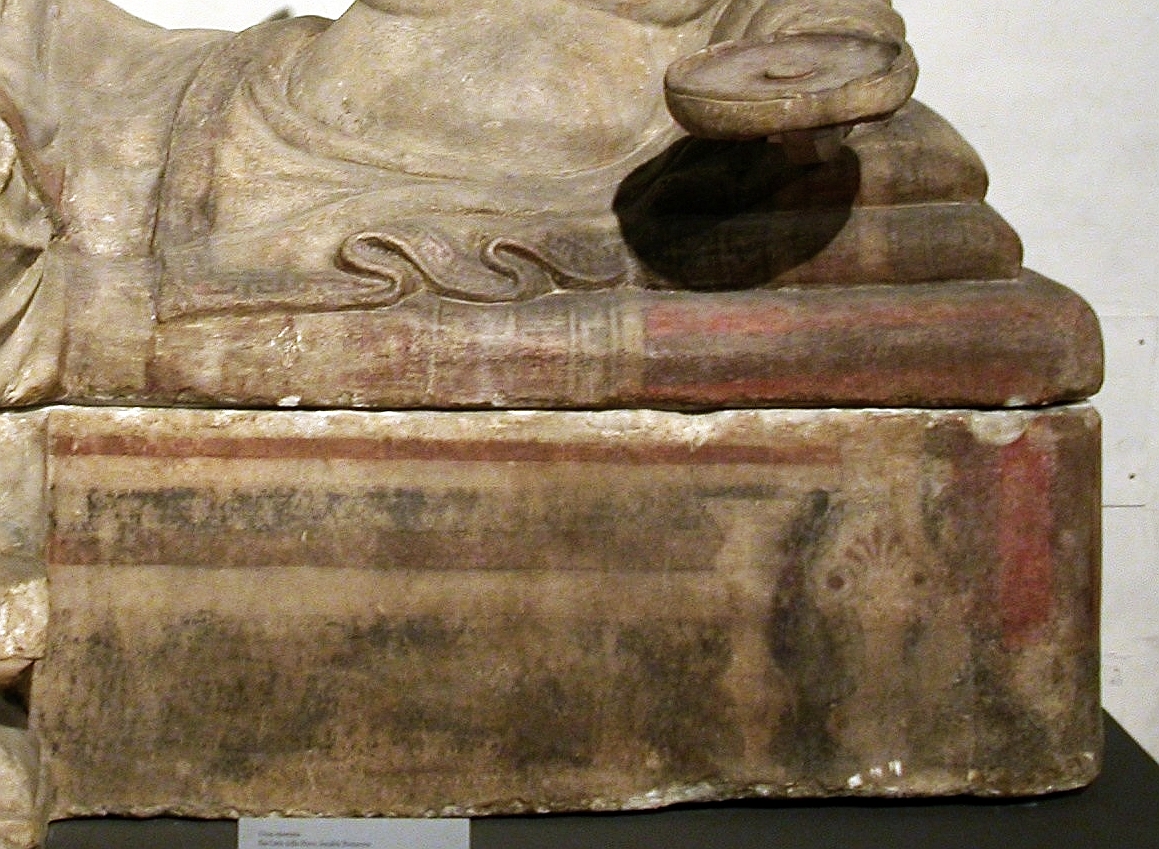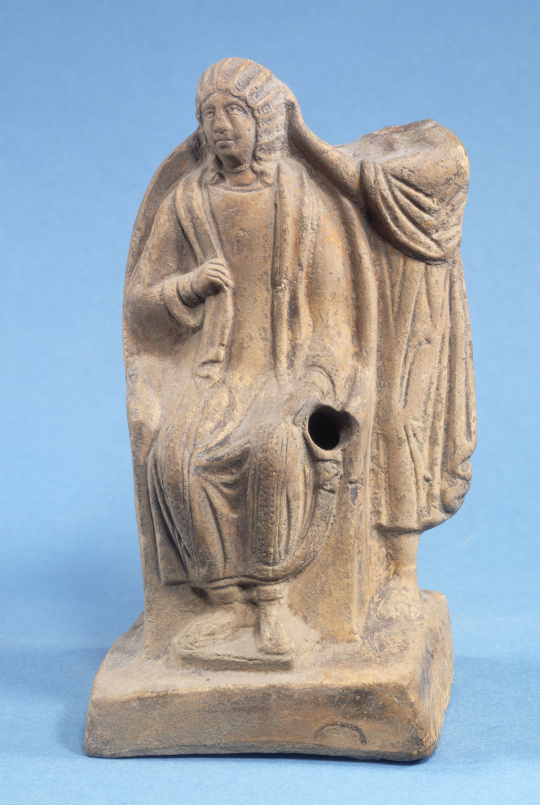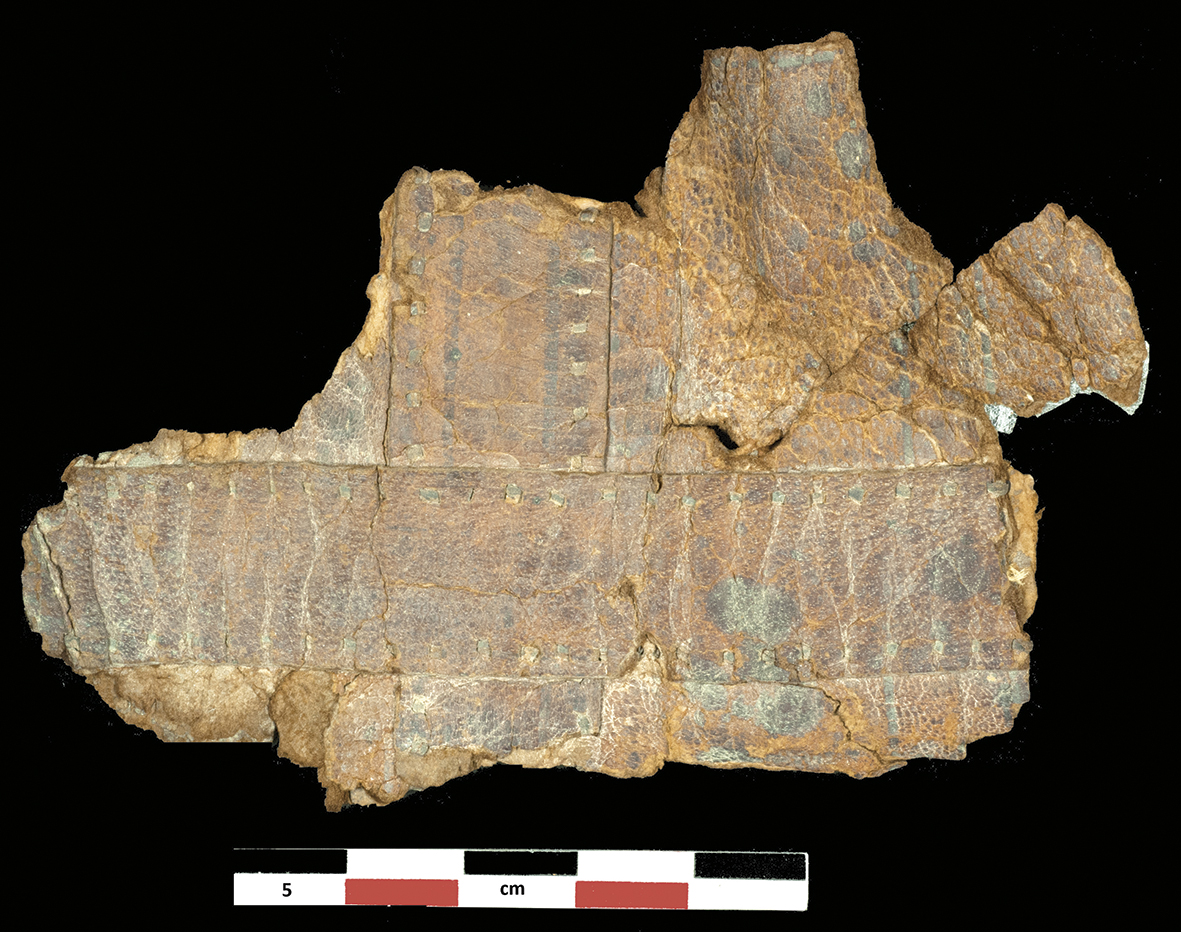



NAM Athens
The representation of an ornamented woven fabric; 1nd century, from Lykosoura , Greece.
“The upper level of the veil of Despoina has the following modes of decoration (from top to bottom):
- A series of triangular rays
- A band of eagles and winged thunderbolts
- A band of olive sprays
- A frieze of Nereids riding sea horses and Tritons, with dolphins intermixed
- A tasseled fringe
The lower (and larger) layer has (from top to bottom):
- A frieze of Nikai carrying censers, while bearing olive sprays in front of themselves
- A band of olive sprays
- A frieze of dancing animal-headed figures
- A running-wave meander pattern”
It has been suggested that this veil is representative of the types of tapestry or embroidered woven materials that were created by contemporary artists in that community.

The Veil of Despoina, Alan J. B. Wace
American Journal of Archaeology
Vol. 38, No. 1 (Jan. – Mar., 1934), pp. 107-111 https://www.jstor.org/stable/498936

The fallacy of Arcadia https://books.openedition.org/pulg/1626
“The dating of the sanctuary, and especially the statue-group, has been a fraught issue; even knowing from Pausanias the name of the sculptor, Damophon of Messene, does not provide certainty. To summarise an extremely complex debate, three periods are possible: fourth to earlier third century BC, early second century BC, and second century AD, with the first two the strongest candidates.”

Drawing: Dickins 1906/1907: pl. XIV
Theriomorphic Figures in Hellenistic and Roman Arcadia: Nostalgia and Ritual, Erin Walcek Averett
In: Hellenistic and Roman Terracottas, pp. 165-179
https://brill.com/view/book/edcoll/9789004384835/BP000022.xml

Interpretation of a group by Dickins
images:https://en.wikipedia.org/wiki/File:Lykosoura-veil-2.jpg
https://en.wikipedia.org/wiki/File:Lycosoura-group.jpg
https://en.wikipedia.org/wiki/File:Lycosoura-veil.jpg
Nike detail https://commons.wikimedia.org/wiki/File:NAMA_1737_(Nike).jpg
marine procession https://commons.wikimedia.org/wiki/File:NAMA_1737_(marine_procession).jpg
